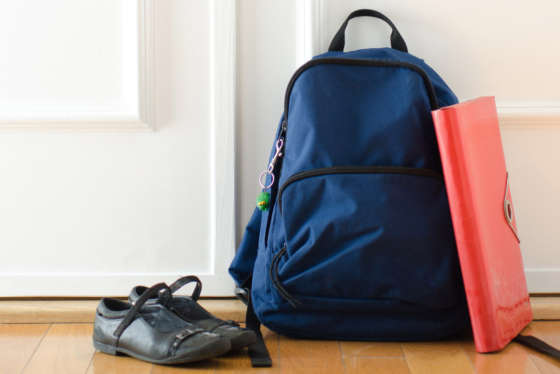WASHINGTON — At the start of the year, what parent doesn’t want their child to do their very best?
Whether that’s with homework, in a specific subject, or on the SAT and college applications, a new year of school brings a chance to refresh. It’s a time to keep things going if the summer kicked off on a high note, or to hit the reset button if you just managed to make it over the finish line as last year closed out.
But here’s the tricky part: You’re not the one who has to go to class and do the work (and thank goodness because it’s been way too long since long division and Shakespeare).
You want to help, but you don’t want to seem like you’re micro-managing. You want to give them space, but you don’t want to find out about the yet-to-be-started quarterly project report the night before it’s due. And ultimately, you want them to get the most out of their education, but that’s not the easiest thing to convey to a teenager.
So when it comes to supporting your kids this year, it shouldn’t come as a surprise that most parents struggle to find the balance between helping too much and not enough.
How involved should I get?
When kids are young, in the early grades of elementary school, it’s OK to sit with them and help when needed. Young children simply require a bit of hand holding, and that’s OK to start out. But as they get older, a good rule of thumb is to take a bit more of a measured approach.
First, be sure they know what they actually need to do for homework. Walk them through the process of pulling out their binder or homework folder, or logging into their teacher’s website, and looking at what they have due the next day.
Then, help them get started to be sure they understand the first few problems. This is the part of the process with the highest chance of drifting focus and procrastination, so get them off on the right track and you’ll have a much better chance of them being able to complete their work independently.
And let them do just that. Once they’ve started, walk away so that they have the opportunity to do it themselves. This will help build the skills and confidence they’ll need as they progress and eventually move into middle school, where the assignments become more rigorous with less teacher assistance.
How do you know if your child needs a little more help?
Typically, kids do OK in the first quarter, because much of the material in those first few weeks is review. But when new material is presented, it’s common to see problems crop up.
Sometimes your kids will ask you for help when they get stuck. And if this happens in your home, it’s a good sign! It means that your child cares enough to get your opinion. So when you find yourself in this situation (e.g. your sixth grader is frustrated because she just doesn’t understand how to set up ratios in math) there are three ways you can respond:
Option 1: “Honey, let me show you how to do this. First, set up the fraction like this and then you make sure the numerator …”
But inevitably when you take this approach you hear, “Mom, that’s not the way Mrs. Smith says to do it!”
Option 2: “Suzie, I already went to sixth grade. This is your homework, not mine.”
This brash appeal to their sense of responsibility might feel good at the moment, but if you want your child to come to you later on when he or she needs support, you’re probably doing yourself a disservice by playing the it’s-your-job-to-figure-it-out card.
Option 3: “These ratios can be tough. Are there examples from your notes or do you have a similar problem like this in your book?”
So what’s the best approach?
You guessed it — Option 3.
This is the best approach to take because you’re leading your daughter to the answer without telling her what to do. And in the process, you’re helping her figure it out on her own, which is a skill she absolutely needs to have in sixth grade and through middle and high school.
ABTA (Always Be Thinking Ahead)
The bottom line is that you always want to be thinking ahead.
How can I best coach (not nag and micromanage) my child to be independent and self-motivated?
Ultimately, you want to support your child to develop the ability to figure things out on his or her own, but with a support network — you.
Instead of focusing on grades (straight As or As and Bs), put the focus on getting started on homework at a reasonable time, keeping the study area organized and having a system for studying.
And by focusing on the process in this way, the outcome (a well-rounded report card) will take care of itself.
Ann Dolin is a former public school teacher and the founder and president of Educational Connections Tutoring, which helps students throughout the D.C. area. She’s the author of the award-winning books “Homework Made Simple” and “A Parent’s Guide to Private Schools.”







